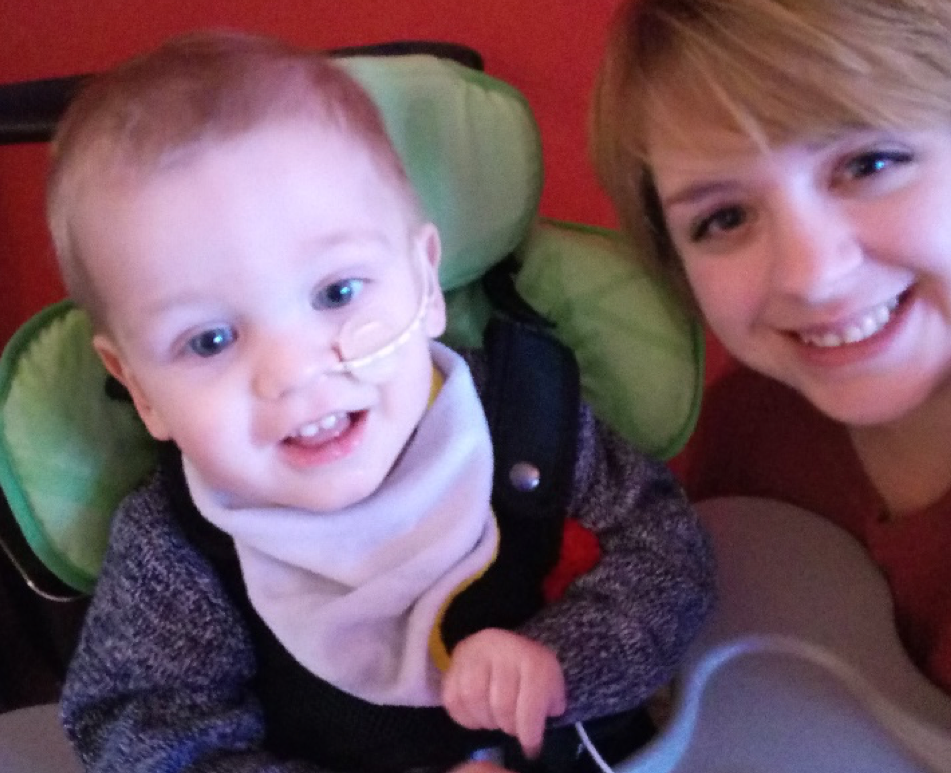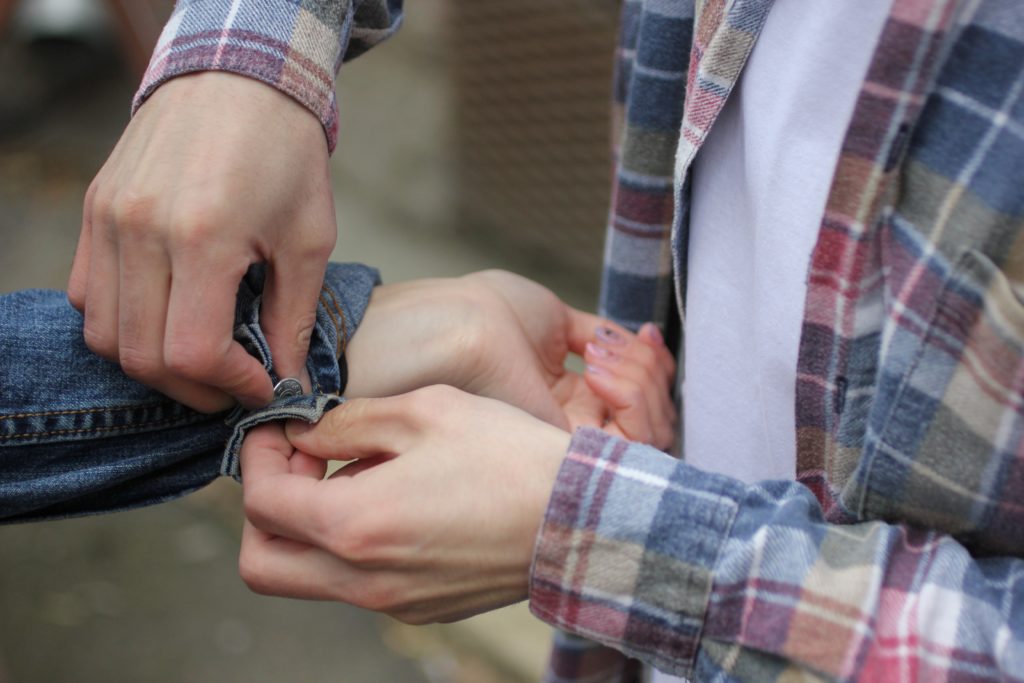Posted May 17th 2019
I’m a community mental health nurse but currently on a career break as I am now caring for Sebastian full-time. I’m hoping to go back to work once he goes to school.
My story
When I was a teenager my dad passed away in a tragic accident and because of this, I grew up around grieving family members while I was struggling to process my own grief. I accessed support through my GP who started me on anti-depressants and referred me to grief counselling.
I really believe that the counselling and medication saved me from a very dark place, and without it wouldn’t have been able to complete my GCSEs or properly function day to day.
After completing the counselling, I then decided that I would want to have a career that would help other people too and so I enrolled on the mental health nursing course. I’ve been nursing since the age of 21.

As a mental health nurse, I support patients in their own homes to recover or maintain their mental health. This can be through referring to different agencies, supporting patients with medication or accessing other types of support that they need. It’s a busy job but I find it very rewarding.
Seb’s story
At the age of 27, I had my son Sebastian. He was born full term and was a very healthy baby. I enjoyed motherhood and started making friends with new mums in the area.
When he was 12 weeks old Seb experienced a brain injury.
I can’t really remember much of that first year, I spent a lot of time inside hiding myself and Seb in the house. I couldn’t cope with people staring at him (he had a nasogastric tube placed in his nose).
I couldn’t cope with seeing other parents and their new-born babies and I couldn’t manage the awkward questions that people would ask. I was very anxious.
I again accessed a lot of talking therapies, I realised that I had to leave the house for my son. I started on anti-depressants, accepted that I had to leave work for a period of time to manage his care and really tried my hardest to get my confidence back.
Seb has quadriplegic cerebral palsy, epilepsy and he is tube fed. He is able to do much more than I was originally told he’d be able to after he was injured and he is one very happy toddler (and gorgeous if I say so myself).

My days revolve around his care needs. If he isn’t with me (he attends creche two days a week) I’m washing syringes or blending his food, or ordering medication supplies for him. We quite often have three or four appointments a week and I try to fit in some physiotherapy and speech and language every day.
We are surrounded by so many people who love us and have helped us so much.
Taking care of yourself so you can care for others
I realised that I had to take care of my own mental wellbeing. Being a mental health nurse and with my previous experience of accessing talking therapies, I had a unique view of what I needed to get through the hardest year of my life.
When it comes to self-care and mental health wellness I try to make sure that I do something for myself every day. Being a full-time carer is a 24-hour job, I’ve felt lost and invisible at times.

I have met some amazing mothers who are raising children with additional needs and taken Seb to some groups where we can meet other people in the same position as us.
Being around other people and carers is very helpful and has lifted my mood at times when I’ve felt lonely and low.
Our local child disability team have signposted me to various charities and support networks that have also helped me feel less isolated.
The little things help too
Self-care is so important as a carer, whether that’s drinking your coffee from the nice mug or like today I bought myself some flowers. My advice to any carer is to accept help from people who offer it.

I was embarrassed to accept any help at the start, but people generally want to help. Let them. Sometimes I allow myself to have a break and read a good book or go and meet up with some friends.
As a carer you have to remember that you are important too. Get out there and ask professionals for help.
Resources
- Mind – How to cope when supporting someone else
- Mental Health Foundation – Carers statistics
- Carers Trust – Caring for someone with mental health problems
- NCMH blog – A carer’s perspective
- PÂR – Partnership in Research – an NCMH initiative that encourages service user and carer involvement in mental health research.
Sign up now and receive new blog posts to your inbox.
